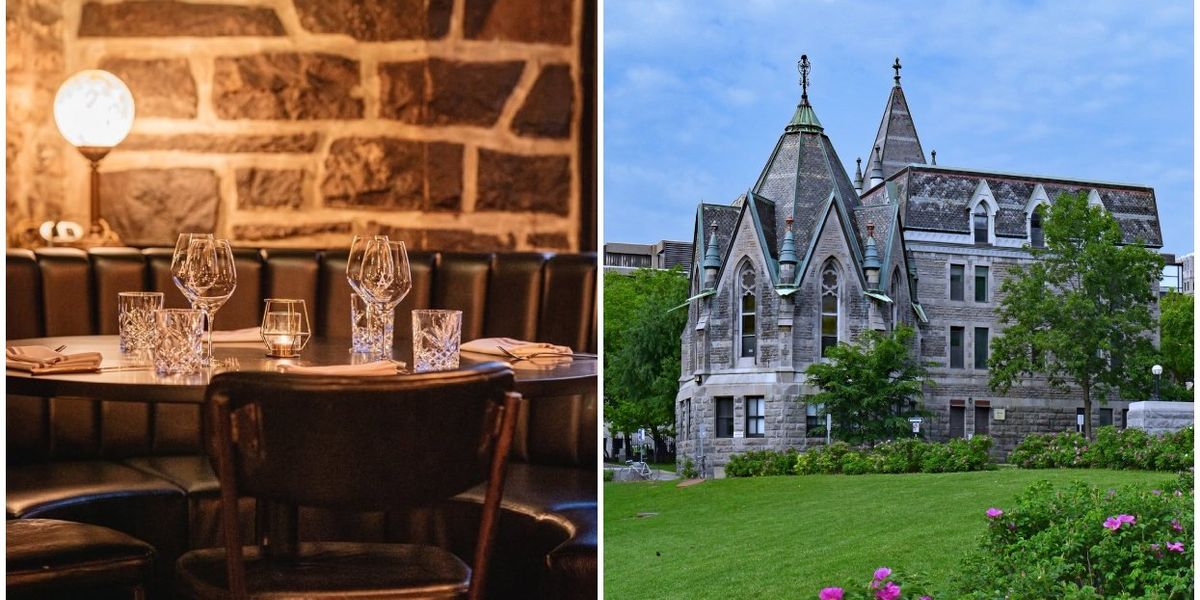Patricia Zentilli in The Pink Unicorn, Northern Light Theatre. Photo by Brianne Jang, bb collective photography
By Liz Nicholls, .ca
In the solo play that returns to Northern Light Theatre after a decade to launch the company’s 50th anniversary season, we meet a woman whose alignment with her world — and the next one too — gets thrown off the rails. Which leaves her with a choice to make.
To help support .ca YEG theatre coverage, click here.
In the play by the Canadian-born American writer Elise Forier Edie, Trisha (Patricia Zentilli) is not one of the world’s natural activists. She’s a small-town Texas widow and single mother, a conservative church-going Christian who is perplexed and appalled when her teenage teenage daughter announces she’s gender-queer. Joleen — new name Jo, new pronouns they/them — wants to start a gay-straight alliance at Sparkton High School. Guess how that goes.
“How on God’s green earth can you be a girl and a boy at the same time?” wonders Trisha. “A person without a gender”? What can that mean? In Trevor Schmidt’s boldly stylized design for his new production, Trish, blonde and beautiful and pink-clad in the person of Zentilli, puts her case to us not in a “real” small-town kitchen with a cup of coffee but in a fanciful pink salon with a glass of pink lemonade.
A cleaner in the local hospital, she lives in a kind of pink Barbie puppet theatre, imaginatively lighted by Larissa Poho. The pink wallpaper peels back a little in one place to reveal a window to the idealized outside world, a small framed image of white picket fence, wheat, blue sky puffy clouds.

Patricia Zentilli in The Pink Unicorn, Northern Light Theatre. Photo by Brianne Jan, bb collective photography
This is Trisha’s world from the inside out, in Schmidt’s design a vision through her eyes, and it’s unambiguously unilaterally feminine, bolstered, as we learn, by fundamentalist Christianity. It’s a chamber where the notion of gender as non-binary or fluid, indeterminately located somewhere on a spectrum, (or, as Jo says, invisible), is, to say the least, preposterous.
Trilling away in a light, bright, soprano timbre (with one of those improbable Texan drawls you have to get used to), Zentilli conjures for us a woman who is genuinely startled and dismayed to discover a whole new, darker, colour palette to the universe. If Jo had been knocked up, or even if “the Mormons had got hold of her,” Trisha’s equilibrium would have rocked, but held firm, she says. But “nothing in my life had prepared me for gender-queer” and “bi-what-nots.”
But when her minister, Pastor Dick (ha!), fulminates against gays, uses the Bible as a weapon, hauls out the Nazi argument, Trish finds herself outraged on behalf of her daughter. And she walks out of church and her own life — into a new one. In a nuanced, thoughtful performance Zentilli conveys the dramatic enormity of it all for the character, the sense of a Candide shoved, step by reluctant step, into a brave new world for which she has no GPS. Trish’s sense, sometimes comic and sometimes poignant, of her own limitations, prejudices, and flaws, makes her likeable despite it all, and gives her a different flavour than, say, the blue-collar heroism of a Norma Rae or an Erin Brockovich. Trish never does call Jo “they” instead of “she.” But she does confront the school principal, and finds his authoritarian hypocrisy infuriating.
In her new life the people she meets, including her first lesbian (Enid is so fat Trish “feels sorry for her bones, working overtime to hold her up) and wheelchair-bound Dorcas (whose speech is like “gargling”), are not to her taste. “I hate diversity,” she admits at one point; even the word feels foreign in her lexicon, as Zentilli conveys. The beauty in diversity is something Trish has to struggle to see. “I don’t know how Jesus did it,” she sighs. “The Other” is not someone she’s ever wanted to meet — until that Other turns out to be someone she loves.
Perhaps the most surprising thing of all in The Pink Unicorn is that Trish’s transformation isn’t so much about understanding — she admits she might never understand gender-queer — but empathy. And it’s empathy honed by the experience, new to a life-long majority-dweller, of being in the minority.
Social ostracisim ramps up with threatening phone calls, horrible names spray-painted on her car … and an unfamiliar sense of being an outsider, like Jo and her LGBTQ+ friends, bullied at school. Trish has always just had ‘her people’ around her. And now she doesn’t. And she pays a price. In standing up for her kid in a small town, she’s up against church, religion, school, social circle, red-neckism, even (or even more implacably) her mother. And the sheer mystery of Joleen-into-Jo compels Trish to re-think her estrangement from her alcoholic big bro, in a bar scene that will make you laugh, and cry.

Patricia Zentilli in The Pink Unicorn, Northern Light Theatre. Photo by Brianne Jang, bb collective photography
Part of Trisha’s “journey” is learning to speak to other people, to mobilize outrage to assemble her thoughts and impulses. It takes considerable acting finesse in shaping a character to pull this off. Zentilli is impressively skilled at negotiating this improbable development, from the woman with a supply of rustic similes (“nervous as a naked man in a pond full of snapping turtles”) to a woman who can toss off “cross-dressing in the name of Thomas Paine is not the American way.” Or in an encounter with school principal Cyril Makepeace (ha!) where she notices “a crack in his complacency.” Which sounds a lot more like the playwright than Trisha. Zentilli’s smart performance takes this into account: this is an insightful and emotionally engaging, funny and touching play, but not a great one in its writing.

Patricia Zentilli in The Pink Unicorn, Northern Light Theatre. Photo by Brianne Jang, bb collective photography
I must admit, I didn’t quite follow the elaborate (and to me a bit forced) line of reasoning in Trish’s story that links Jesus, this life to the next, a pink unicorn named Star Dancer to God, and civil rights and the ACLU (and a throw-away comment about “New York Jews”) to religious beliefs as opposed to organized church religion. Darrin Hagen’s delicate score, with its hints of celestial magic, seems entirely à propos. And, in a play about enlightenment, or lack thereof, Polo’s contributions as lighting designer are crucial to the rhythms of the production.
In one way, The Pink Unicorn is slightly out of date, of course, in a world that has pretty suddenly spun forcibly backwards to an out-and-out fascist repression of “diversity.” As reported by Trish, Jo’s commentary about the patriarchy or “the capitalist agenda,” has lost some of its comic lustre lately. But in another way, the play is timelier than ever, here in our own part of the world where an Alberta government is going out of its way to marginalize gay and trans kids. Empathy is called for, with some outrage too, as The Pink Unicorn and Zentilli’s performance, tell us. You don’t have to understand to be tolerant.
As Trish says “there is no happy ending.” It’s a thought that, like this play, stings and makes you teary.
REVIEW
The Pink Unicorn
Theatre: Northern Light Theatre
Written by: Elise Forier Edie
Directed and designed by: Trevor Schmidt
Starring: Patricia Zentilli
Where: Studio Theatre, Fringe Arts Barns, 10330 84 Ave.
Running: through Oct. 11
Tickets: northernlighttheatre.com
















